The Spelling Bee is the new Math Olympiad. But the increasingly popular competition does more — it tells parents that it’s
OK if kids have an aptitude for English rather than for
mathematics.
I was never good at mathematics. As a child, my mother, who was a whiz with numbers, tried her hardest to make me quicker at calculations, but I couldn’t do it. Even now, I reach for my cellphone calculator for the smallest bit of counting. Like generations of kids before and after me, math was scary. The fact that I was better at English — I loved reading and had a precocious vocabulary — somehow didn’t seem to count for much. English was simply seen as an ‘easier’ subject, so why make a fuss over it?
A lot of kids growing up today may be spared this brush-off. Thanks to the Spelling Bee, an aptitude for English is being recognised and increasingly rewarded at schools. The competition, like its much-publicised American version, tests kids on their spelling, language and verbal skills. In India, the largest country-wide event is organised by the Cochin-based MaRRS Intellectual Services, and tests children on (besides spelling) pronunciation, synonyms and antonyms, idioms, anagrams and crossword skills. It is the linguistic equivalent of the Math or Science Olympiad, though not as prevalent yet. “But it’s catching on,” says P Suresh Kumar, founder and managing director of MaRRS. “The trigger could be extensive media coverage here of the US competition [organised by a different group, Scripps], because children of Indian origin frequently come first.” The final in May threw up yet another desi winner, Kavya Shivashankar, the seventh in a decade.
In 2004, when MaRRS wanted to have the first country-wide competition, only eight schools in Mumbai were willing to partner. This year, 150 have come on board, while the number of participants has gone up from 500 four years ago, to 10,000 this time.
Others groups have also been hosting Spelling Bee events. In March, HDFC Standard Life had one, while earlier this month, TV network ESPN began televising a weekly competition, Spelling Champs, for kids between 11 and 14 years.
A horrendous error
There’s something unnerving about sitting alone in a darkened examination hall, answering rapid-fire questions asked by an American-accented electronic voice, and knowing that you’re being watched by hundreds of people, including your family, teachers and schoolmates.
Shreya Srivastava was doing really well during the recent Spelling Bee finals, till the voice on her headphones made a slight crackle. The 13-year-old student of Podar International school, who has no problem spelling ‘xenophobia’ or ‘cappuccino’, tripped on ‘forensic’. “I heard it as ‘horensic’. I asked for a repeat, but it’s not allowed,” she says.
The glitch cost Shreya the finals, and an entire summer of word exercises, including the learning of 1,000 words, 3,000 synonyms and antonyms, 1,000 idioms, 700 anagrams and 100 crossword puzzles. It was a disappointment for the whole family, because they had all been helping her.
Shreya’s schoolteacher mother, Purnima, would sit with her daughter for several hours every day, helping her learn new words, draw up a list of words from the dictionary, and generally urge her to read more and more. Her father Sanjay, when he came home in the evening, would toss random words at Shreya to keep her on her toes.
But the Srivastavas have a genius to spare. Shreya’s younger brother Shivang, a bright-eyed, spiky-haired 10-year-old, came first in his category in the competition and will go to the international finals. “He can learn 4-5 pages of words a day, and is very good in the pronunciation key round (where contestants have to identify the word from dictionary-like markers)” says Purnima. The kids are smart but not bookish; a shelf of non-academic trophies is testament to that and their proud mother is only too willing to provide details.
Testing time for parents
Parents, it appears, are sometimes more enthusiastic about the competition than their kids (and a tad edgy too). Eight-year-old Shivani Nirgudkar’s mother Mala, helped her daughter prepare for the Spelling Bee over four or five months, taking care not to overload the child. She created mnemonic devices and word associations so that Shivani could remember the longer, more difficult words.
Viny Kava’s son Subh, a cute seven-year-old with oversized glasses, won this year’s nationals, in the junior most category (5-7 years), and has painstakingly learnt about 800 words for the international event, thanks to his mother. She’s even formed a Spelling Bee study group with friends.
“Subh gets tired of learning from me sometimes, so some friends and I decided to take turns at teaching,” says Viny. Once a week, she takes Shubh from their Khar home to Kalina for a study session. “He already reads all these encyclopaedias,” she says, bringing out an assorted pile from the study. “But I want him to have a good base in spellings. Vocabulary and grammar will never go waste, no matter what he studies.”
Shubh does know his words. He frequently uses ‘gigantic’ and ‘enormous’ in conversations, and can spell ‘adolescence’, though he’s still years away from it.
Not just math and science
Teachers and guardians, too, hope the Spelling Bee will deflect some of the over-arching emphasis parents lay on the study of science and mathematics, and channel some of it towards a love for languages. “We push our kids into science because we want them to become doctors and engineers, and we’ve been doing this for far too long,” says Kashmira Gandevia, principal of Maneckji Cooper Education Trust school. “It’s time we started having more competitions around language proficiency. How can we keep ignoring the link language of the world?”
According to MaRRS Mumbai coordinator, Mrunal Datar, the competition has expanded to become an ‘international’ event; this year’s finals in the UAE in November will have India, Nepal, the Maldives and some of the Gulf countries participating. So far, Indian kids have made a clean sweep at the Scripps competitions. Kumar says it shows that “Indian kids have an aptitude for languages, maybe because we are all exposed to at least three or four different languages at a time. So why not build on that talent?”
Parents like Lakshmi Torlapati hope this will spin off into a love for other languages as well among students. “Especially their mother tongue,” she says.
Right now, though, her daughter Lohita, 17, who has made the international finals in the senior-most category, has been brushing up her word power with online scrabble and anagram games. The Harry Potter fan also occasionally “reads through the dictionary” as part of her preparation, and revises using the flash cards her older brother made for his GRE exam.
Her father, environmental scientist Raghavendra Rao, is also overseeing some of the study. The couple hopes the Spelling Bee will be a stepping stone for tests like the SATs. “It’s great, but because of our involvement, we’re learning a lot of new words as well,” says Lakshmi.
![submenu-img]() This singer helped BCCI when it had no money to award 1983 World Cup-winning Indian cricket team, raised 20 lakh by...
This singer helped BCCI when it had no money to award 1983 World Cup-winning Indian cricket team, raised 20 lakh by...![submenu-img]() Virat Kohli’s new haircut ahead of RCB vs CSK IPL 2024 showdown sets internet on fire, see here
Virat Kohli’s new haircut ahead of RCB vs CSK IPL 2024 showdown sets internet on fire, see here![submenu-img]() BCCI bans Mumbai Indians skipper Hardik Pandya, slaps INR 30 lakh fine for....
BCCI bans Mumbai Indians skipper Hardik Pandya, slaps INR 30 lakh fine for....![submenu-img]() 'Justice must prevail': Former PM HD Deve Gowda breaks silence in Prajwal Revanna case
'Justice must prevail': Former PM HD Deve Gowda breaks silence in Prajwal Revanna case![submenu-img]() India urges students in Kyrgyzstan to stay indoors amid violent protests in Bishkek
India urges students in Kyrgyzstan to stay indoors amid violent protests in Bishkek![submenu-img]() Meet IIT graduates, three friends who were featured in Forbes 30 Under 30 Asia list, built AI startup, now…
Meet IIT graduates, three friends who were featured in Forbes 30 Under 30 Asia list, built AI startup, now…![submenu-img]() Meet woman who cracked UPSC in fourth attempt to become IAS officer, secured AIR...
Meet woman who cracked UPSC in fourth attempt to become IAS officer, secured AIR...![submenu-img]() Meet IIT JEE 2024 all-India girls topper who scored 100 percentile; her rank is…
Meet IIT JEE 2024 all-India girls topper who scored 100 percentile; her rank is…![submenu-img]() Meet PhD wife of IIT graduate hired at Rs 100 crore salary package, was fired within a year, he is now…
Meet PhD wife of IIT graduate hired at Rs 100 crore salary package, was fired within a year, he is now…![submenu-img]() Meet woman not from IIT, IIM or NIT, cracked UPSC exam in first attempt with AIR...
Meet woman not from IIT, IIM or NIT, cracked UPSC exam in first attempt with AIR...![submenu-img]() DNA Verified: Is CAA an anti-Muslim law? Centre terms news report as 'misleading'
DNA Verified: Is CAA an anti-Muslim law? Centre terms news report as 'misleading'![submenu-img]() DNA Verified: Lok Sabha Elections 2024 to be held on April 19? Know truth behind viral message
DNA Verified: Lok Sabha Elections 2024 to be held on April 19? Know truth behind viral message![submenu-img]() DNA Verified: Modi govt giving students free laptops under 'One Student One Laptop' scheme? Know truth here
DNA Verified: Modi govt giving students free laptops under 'One Student One Laptop' scheme? Know truth here![submenu-img]() DNA Verified: Shah Rukh Khan denies reports of his role in release of India's naval officers from Qatar
DNA Verified: Shah Rukh Khan denies reports of his role in release of India's naval officers from Qatar![submenu-img]() DNA Verified: Is govt providing Rs 1.6 lakh benefit to girls under PM Ladli Laxmi Yojana? Know truth
DNA Verified: Is govt providing Rs 1.6 lakh benefit to girls under PM Ladli Laxmi Yojana? Know truth![submenu-img]() Kiara Advani stuns in Prabal Gurung thigh-high slit gown for her Cannes debut, poses by the French Riviera
Kiara Advani stuns in Prabal Gurung thigh-high slit gown for her Cannes debut, poses by the French Riviera![submenu-img]() Heeramandi star Taha Shah Badussha makes dashing debut at Cannes Film Festival, fans call him ‘international crush’
Heeramandi star Taha Shah Badussha makes dashing debut at Cannes Film Festival, fans call him ‘international crush’![submenu-img]() Streaming This Week: Madgaon Express, Zara Hatke Zara Bachke, Bridgerton season 3, latest OTT releases to binge-watch
Streaming This Week: Madgaon Express, Zara Hatke Zara Bachke, Bridgerton season 3, latest OTT releases to binge-watch![submenu-img]() Sunanda Sharma exudes royalty as she debuts at Cannes Film Festival in anarkali, calls it ‘Punjabi community's victory’
Sunanda Sharma exudes royalty as she debuts at Cannes Film Festival in anarkali, calls it ‘Punjabi community's victory’![submenu-img]() Aishwarya Rai walks Cannes red carpet in bizarre gown made of confetti, fans say 'is this the Met Gala'
Aishwarya Rai walks Cannes red carpet in bizarre gown made of confetti, fans say 'is this the Met Gala'![submenu-img]() Haryana Political Crisis: Will 3 independent MLAs support withdrawal impact the present Nayab Saini led-BJP government?
Haryana Political Crisis: Will 3 independent MLAs support withdrawal impact the present Nayab Saini led-BJP government?![submenu-img]() DNA Explainer: Why Harvey Weinstein's rape conviction was overturned, will beleaguered Hollywood mogul get out of jail?
DNA Explainer: Why Harvey Weinstein's rape conviction was overturned, will beleaguered Hollywood mogul get out of jail?![submenu-img]() What is inheritance tax?
What is inheritance tax?![submenu-img]() DNA Explainer: What is cloud seeding which is blamed for wreaking havoc in Dubai?
DNA Explainer: What is cloud seeding which is blamed for wreaking havoc in Dubai?![submenu-img]() DNA Explainer: What is Israel's Arrow-3 defence system used to intercept Iran's missile attack?
DNA Explainer: What is Israel's Arrow-3 defence system used to intercept Iran's missile attack?![submenu-img]() This singer helped BCCI when it had no money to award 1983 World Cup-winning Indian cricket team, raised 20 lakh by...
This singer helped BCCI when it had no money to award 1983 World Cup-winning Indian cricket team, raised 20 lakh by...![submenu-img]() This film had 3 superstars, was unofficial remake of Hollywood classic, was box office flop, later became hit on...
This film had 3 superstars, was unofficial remake of Hollywood classic, was box office flop, later became hit on...![submenu-img]() Meet Nancy Tyagi, Indian influencer who wore self-stitched gown weighing over 20 kg to Cannes red carpet
Meet Nancy Tyagi, Indian influencer who wore self-stitched gown weighing over 20 kg to Cannes red carpet![submenu-img]() Telugu actor Chandrakanth found dead days after rumoured girlfriend Pavithra Jayaram's death in car accident
Telugu actor Chandrakanth found dead days after rumoured girlfriend Pavithra Jayaram's death in car accident![submenu-img]() Meet superstar who faced casting couch at young age, worked in B-grade films, was once highest-paid actress, now..
Meet superstar who faced casting couch at young age, worked in B-grade films, was once highest-paid actress, now..![submenu-img]() Viral video: Flood-rescued dog comforts stranded pooch with heartfelt hug, internet hearts it
Viral video: Flood-rescued dog comforts stranded pooch with heartfelt hug, internet hearts it![submenu-img]() Dubai ruler captured walking hand-in-hand with grandson in viral video, internet can't help but go aww
Dubai ruler captured walking hand-in-hand with grandson in viral video, internet can't help but go aww![submenu-img]() IPL 2024: Virat Kohli drops massive hint on MS Dhoni’s retirement plan ahead of RCB vs CSK clash
IPL 2024: Virat Kohli drops massive hint on MS Dhoni’s retirement plan ahead of RCB vs CSK clash![submenu-img]() Do you know which God Parsis worship? Find out here
Do you know which God Parsis worship? Find out here![submenu-img]() This white marble structure in Agra, competing with Taj Mahal, took 104 years to complete
This white marble structure in Agra, competing with Taj Mahal, took 104 years to complete
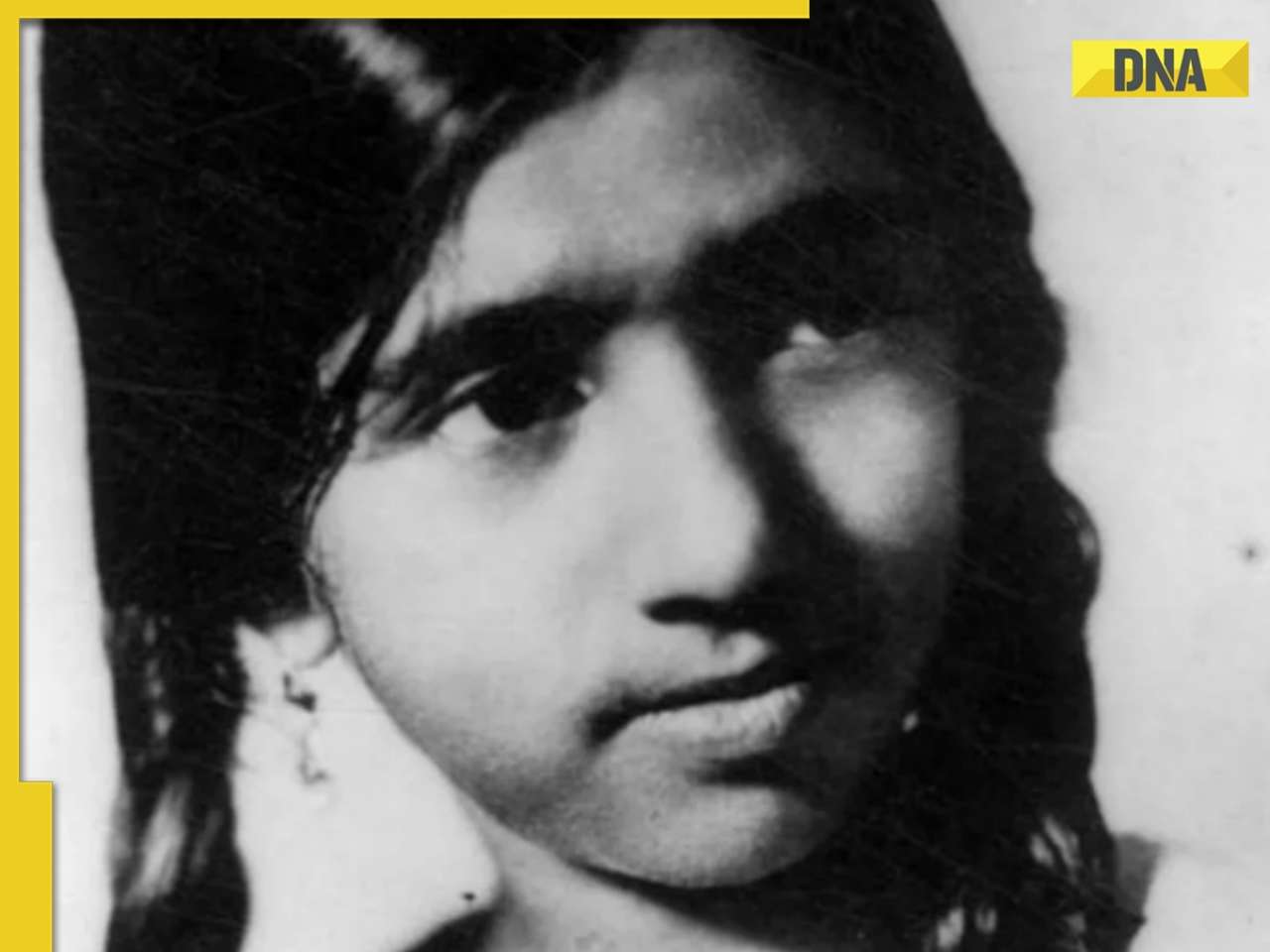

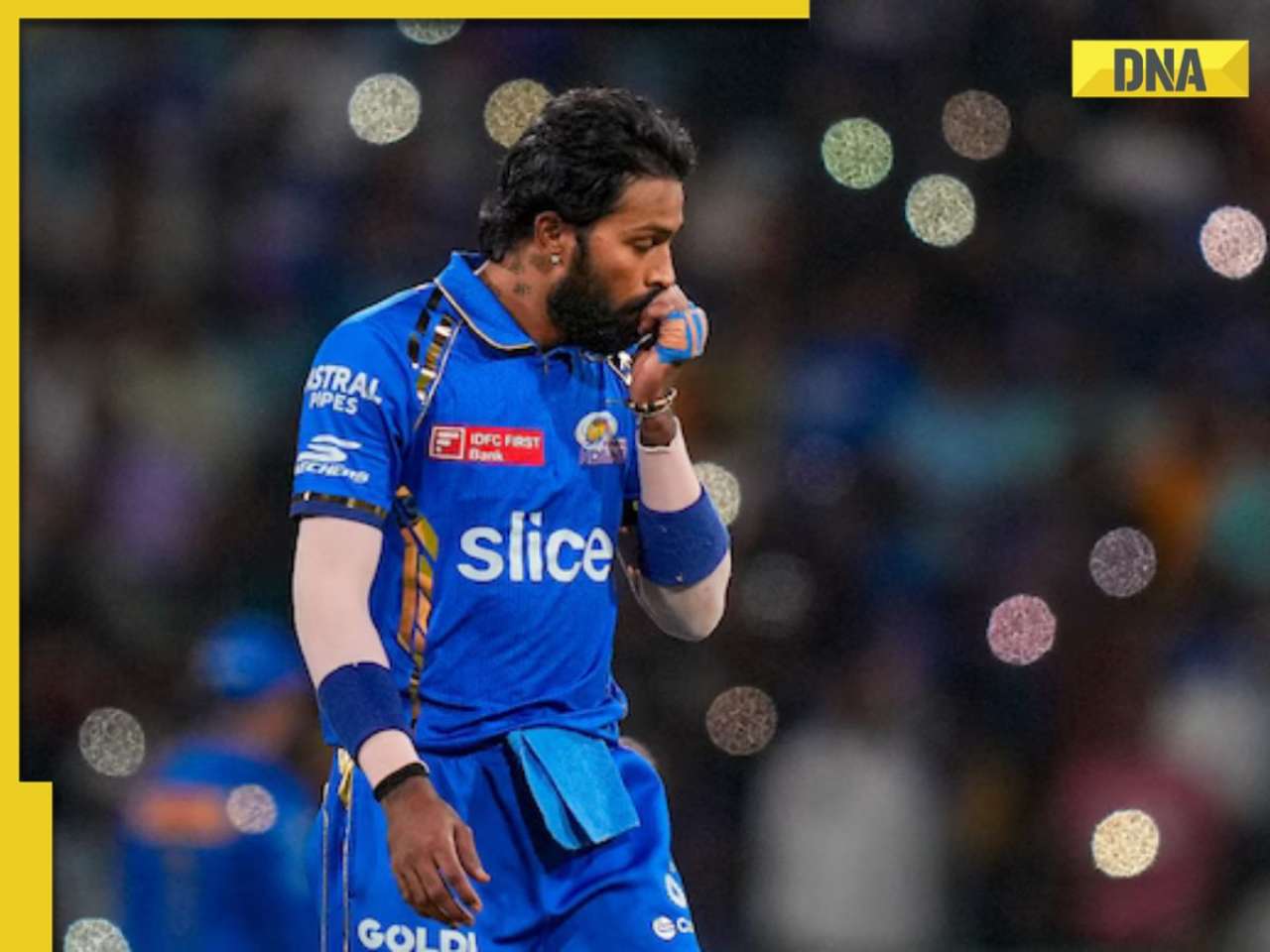
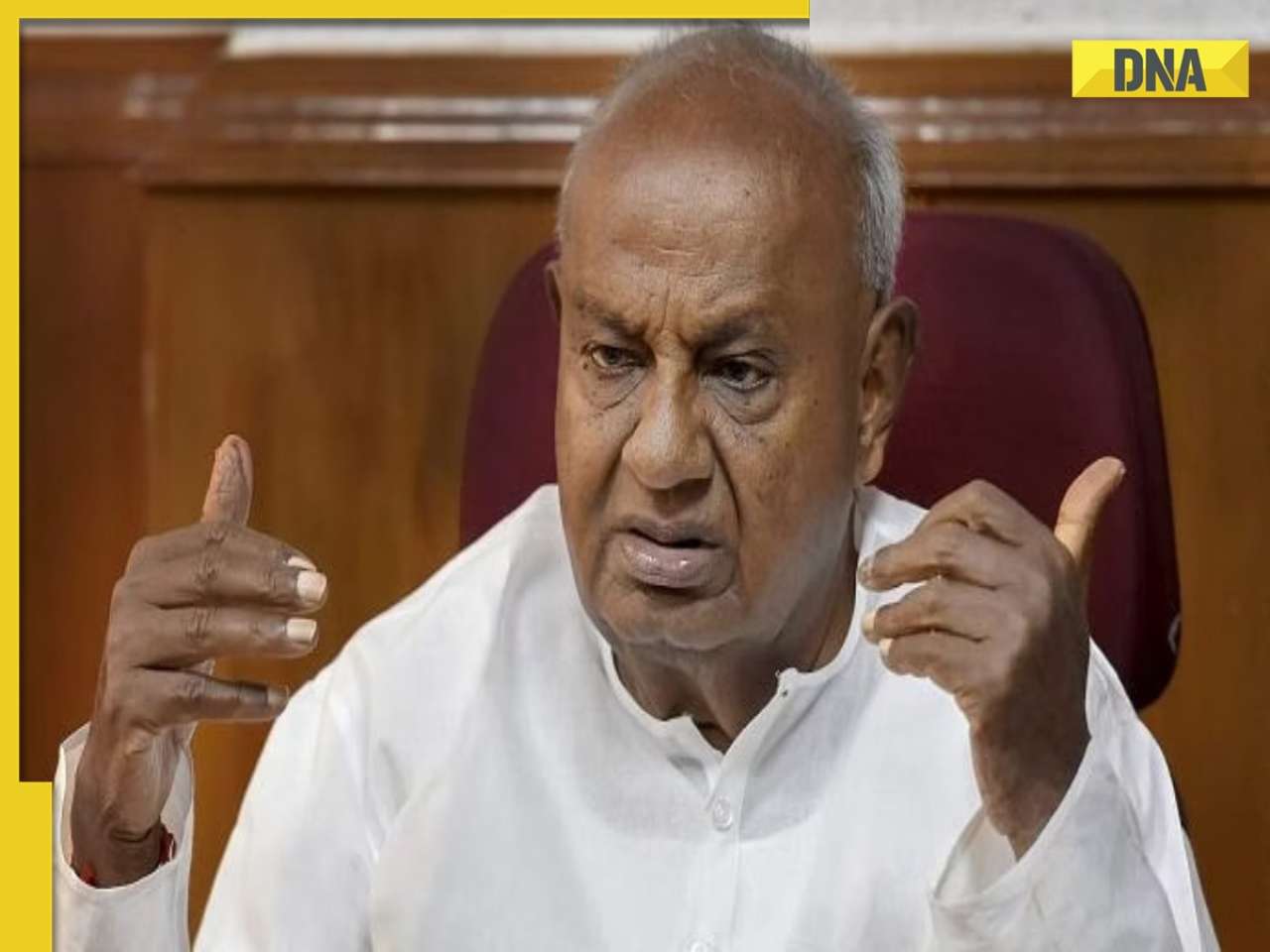




























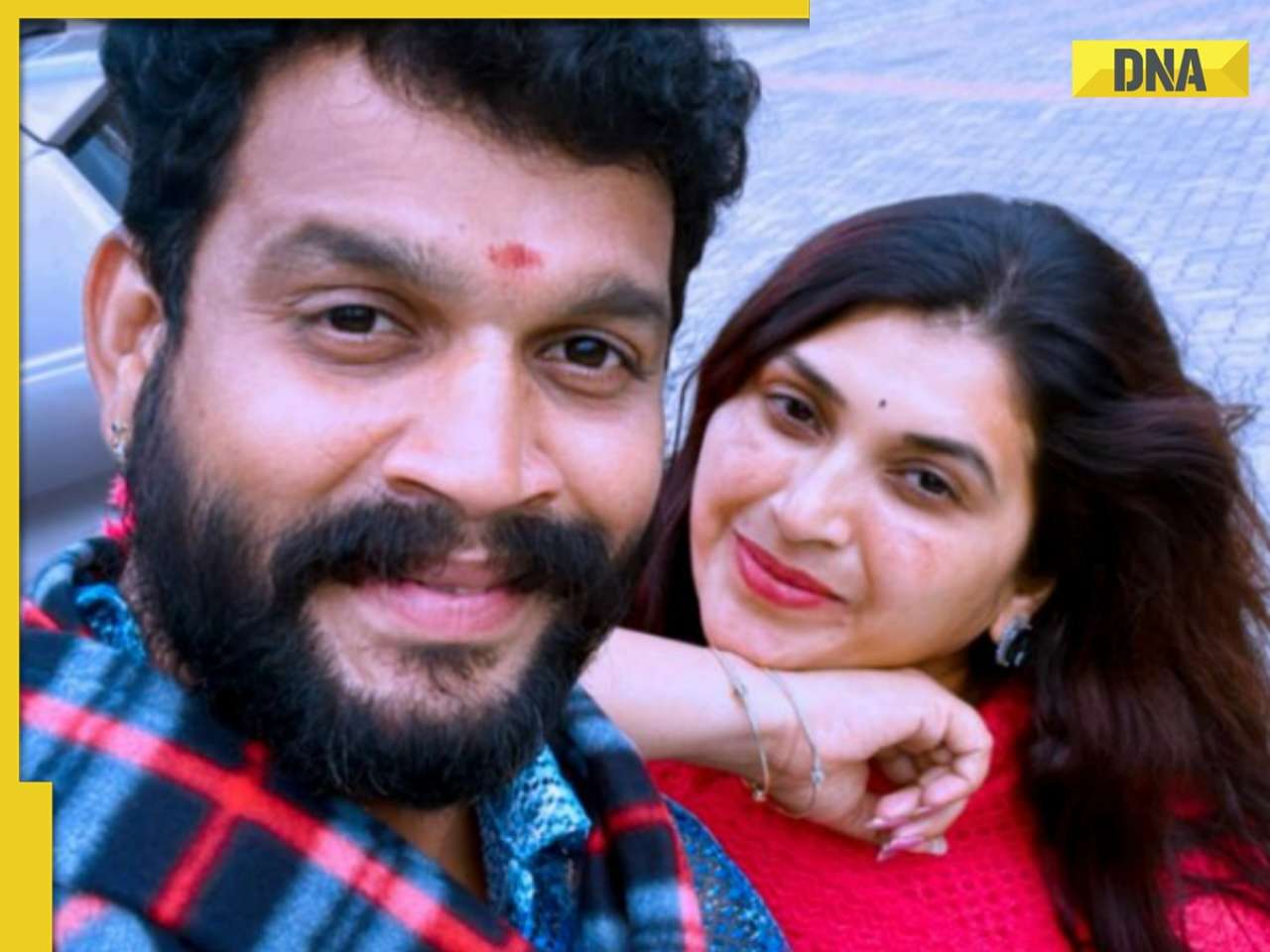



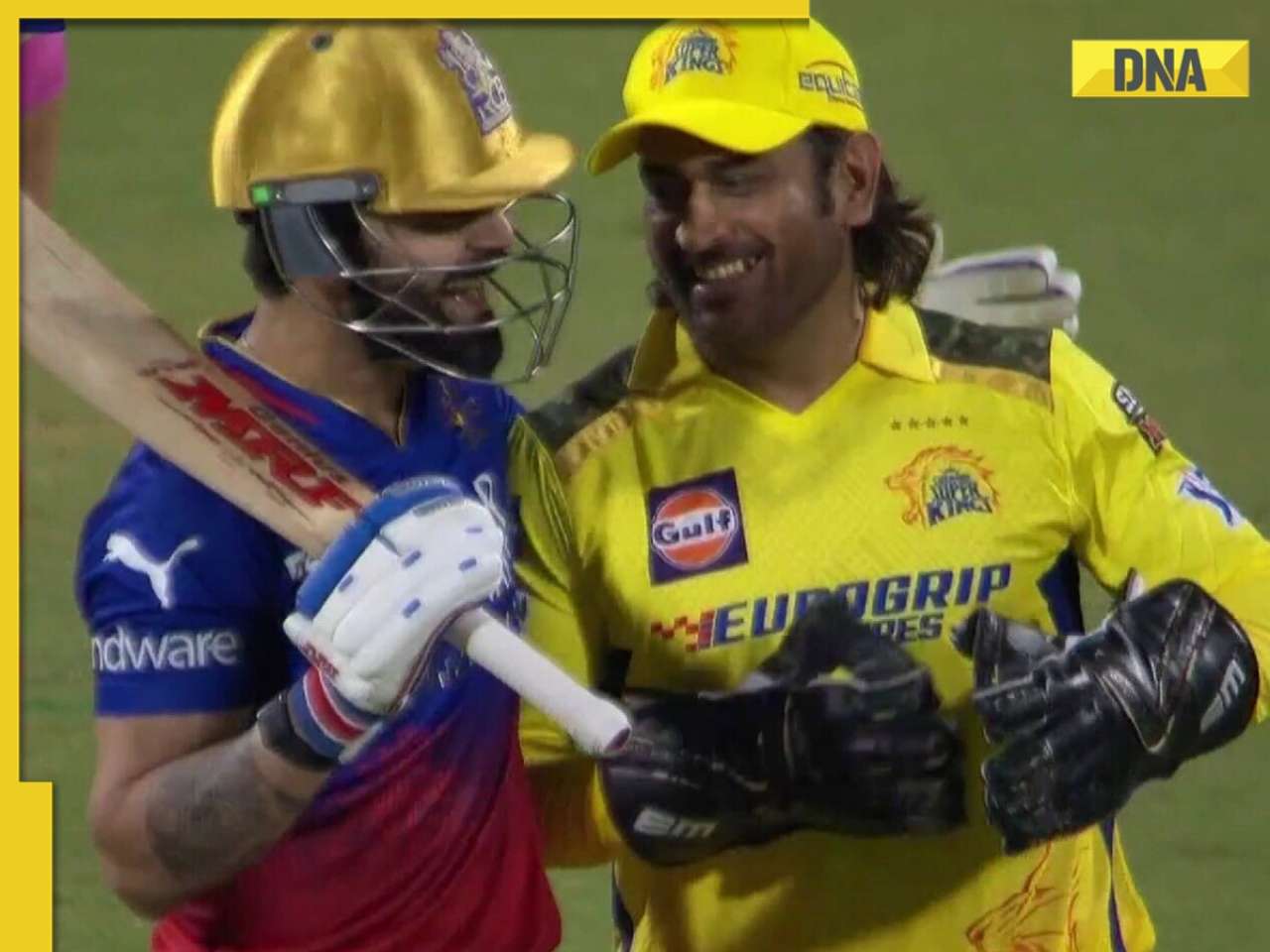




















)
)
)
)
)
)